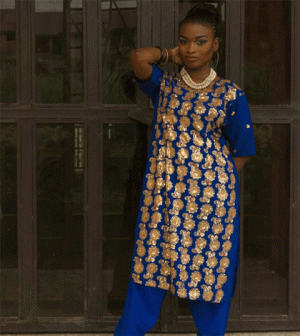- Finding Unshakable Power in a World That Wants to Pull Us ApartPosted 5 months ago
- What could a Donald Trump presidency mean for abortion rights?Posted 5 months ago
- Financial Empowerment: The Game-Changer for Women in Relationships and BeyondPosted 6 months ago
- Mental Health and Wellbeing Tips During and After PregnancyPosted 7 months ago
- Fall Renewal: Step outside your Comfort Zone & Experience Vibrant ChangePosted 7 months ago
- Women Entrepreneurs Need Support SystemsPosted 7 months ago
THE HURDLES FACED BY FEMINIST ACTIVISTS IN NIGERIA: WOMEN’S RIGHTS AND GENDER EQUALITY

By Mosopefoluwa Fayeun
1.0 INTRODUCTION
Assata Shakur once said that part of being revolutionary is creating a vision that is more humane. One of such visions is gender equality and the enforcement of women’s rights. Women rights are the rights enshrined by the United Nations for all human beings across the planet hence the saying ‘’women’s rights are human rights’’. Women’s rights and gender equality go hand in hand because gender equality is a movement for the socio-economic equal treatment of women with men and the enforcement of the fundamental human rights of the woman.
The agitation for women’s rights and gender equality is not a post-colonial ‘thing’. Nigerian women set off in the colonial era in their quest for proper recognition and equality in all aspects of political life with women like Madam Funmilayo Ransome-Kuti who fought oftentimes through protests for women.
Nowadays, Women like Joe Okei-Odumakin, Theo Sowi (director of African Women Development Fund), Funmi Femi-Falana , Abena Busia, Osai Ojigho, Buchi Emecheta, Chimamanda Ngozi Adichie (and the list is endless) have made their marks in the struggle for equality and women’s rights.
Nigerian women are the strongest set of beings on earth. This is because they struggle to get everything in Life; success, happiness, choice, dignity and respect. This amidst others constitute the problem of the women of Nigeria. The agitations for gender equality is a radical enlightenment process that women too are people and as such deserve every privilege meant for all human beings. It is a cause and a march for the social, economic equality of the sexes triggered by the malignation, marginalization and dehumanisation of the female gender, and a movement for the eradication of rape, domestic violence, mental and emotional abuse of women, sextortion of women in politics, marital rape and the likes.
1.1 PROBLEMS OF GENDER EQUALITY AND WOMEN’S RIGHTS
1. Mental, sexual, physical abuse of women: The Criminal code of Nigeria has failed woefully to protect women from personal assault in the punishments and sanctions spelt out to deter future offenders and to also equalize them with men. Section 353 provides for a more serious punishment for the man’s assaulter than the woman’s. Section 55 of the Penal Code provides for spousal chastisement (beating) by the husband in order to ‘correct’ his wife while there is no known provision till date for the chastisement of the husband by his wife which to me, is rather unfair! A woman that commits adultery under the sharia law is more sanctioned than the man she cheated with whereas a woman cannot fornicate asexually, it takes two to tango!
2. Limitation/Domestication and Objectification of Women: According to Dame Judi Deneh, “women are responsible for 2/3 of the work done worldwide yet earn only 10% of the total income and own 1% of the property”. Section 14(3) of the 1999 constitution does not make room for gender equality in the composition of government or its agencies industrial undertaking.
Notable security agencies such as the Nigerian Police Force according to the Police Regulation Act, has work limitations forced on female employees which they could not have protested because of poverty. Policewomen are required to put a “W” before their ranks; are limited to treating cases that involve only women and children; must not be married upon employment and must give notice of marriage after two years of service submitting details of her fiancé, all which are not required of men.
3. Justification of Marital Rape: Marital rape is an offence that has been refused legal backing in Nigeria. Section 182 of the Penal Code provides that “sexual intercourse by a man with his own wife is not rape if she has attained the age puberty”. It is to be noted that marital rape is a serious global scourge that leaves haunting psychological medical
conditions on victims.
4. Sexualisation of women.
5. The Justification of Rape: The Criminal code itself has installed shackles of burden of proof on its victims who are under 16 years of age. Makers of the Criminal Code forget that rapist or their victims do not bring a studio crowd to witness the atrocity about to be committed.
6. Sentimental traditionalism and religious fanatism towards equality: Our traditional norms have set our minds that women and children are to be seen and not heard, that women are objects (mostly sexual ones) meant to achieve lesser in life and aspire to marriage as a calling from heaven.
7. Health issues arising from ill-treatment of women: Health issues arising from the government’s undue neglect of women include Vesico Vaginal Fistula (which occurs as a result of child marriage); STDs contracted from rapists; high mortality rate of child and young mother due to child marriage and home-birthing; mental or psychological problem resulting from all forms of abuse; injuries from domestic violence and assault.
8. Expectations around marriage for women
9. Low allocation of appointments of public and private offices to women.
10. Unequal, one-sided and unjust vilification of the female party to a crime or incident.
11. Verbal, abstract and physical disrespect of women.
12. The body-shaming of women and stigmatization of women with failed marriages.
13. The ‘women’s rights is a woman-thing’ syndrome
1.2 REALISTIC PANACEAS FOR PROBLEMS FACED BY GENDER EQUALITY/WOMEN’s RIGHTS MOVEMENT
1. The inclusion of the pronoun ‘she’ in the constitution and all enabling laws in Nigeria: The pronoun ’he’ appears in the 1999 constitution about 236 times which can be replaced by the pronouns ‘ he/she ‘ or ‘the person since Nigeria is not a country for men only.
2. Creation of laws barring employers/potential employers from discriminating against married or pregnant women: Many Nigerian women have been left jobless and unhappy in their pursuit of employment because of the encumbrance of limitations set for them to follow which they cannot refuse due to the alarming growth of poverty in Nigeria.
3. Strict adherence to the little amount of provisions made to protect women and equalize both genders in the constitution or statutes: Gender equality may have by now, had a strong background if there had been strict adherence to section 42 of the Constitution of the Federal Republic of Nigeria and all other enabling laws enacted to protect and foster women’s right.
4. Training of children from infancy: Parents should be taught to treat their children equally.
5. Gauging the media’s depiction of women: The NBC would be forever applauded if it could gauge sexist language and misogynist wordings in its language campaign as it has now become the order of the day in media.
6. Proper interpretation of religion/religious books: Religious leaders and their followers should be properly guided in their interpretation of religious literature and the practice of their doctrines so as not to get carried away in their own self-belief of supremacy of the male gender and as such adulterate true religion with it.
7. More allotment of political slots (appointments) for women/ more political participation: A study done by Agbalajobi in 2010 shows overall representation of women in politics as 7% and that only 51% of women vote in Nigeria during elections. Unfortunately Nigeria has failed to achieve 30% affirmative of the Beijeng Platform of Action. The present administration seems to have cut in half ministerial appointments for women in the last regime because we now have a mere total of 6 women as ministers. The Nigerian government is therefore advised to see to more appointment of women in government so as to encourage the motives of gender equality.
8. Allocation of funds for women’s rights: The Nigerian government needs to start lending visible support and proper funding to the movement for gender equality and set up a committee to look into the issue.
9. Passing relevant laws to sustain gender equality: The legislative arm of government should encourage bills on gender equality instead of suppressing such bills.
1.3 PROSPECTS: WHY WE NEED GENDER EQUALITY AND ENFORCEMENT OF WOMEN’S RIGHTS
1. The need to eradicate the various dangers and inimical possibilities looming over the female gender.
2. The need to create a secure, nice atmosphere to raise a budding girl-child.
3. We need equality because women are like an uncharted Island; undiscovered and full of resources.
4. We need to uphold women’s rights because humans still believe it is okay to be violent to women, assault, rape and abuse them.
5. We need equality because we need to ease the pain of stigma attached to being single or being a single mother, being a woman in a field completely dominated by men and the list is endless.
6. We need women’s rights because we must put a definite stop to the sexual extortion (sextortion) of the female folk.
REFERENCES
The Criminal Code Act
The Penal Code Law of Northern Nigeria
Police Regulation Act
The Constitution of The Federal Republic of Nigeria of 1999 (as amended)
********
 MOSOPEFOLUWA RUBY FAYEUN is a final year student of the faculty of law Adekunle Ajasin University in Nigeria with special interest in salient women issues in subsaharan Africa.
MOSOPEFOLUWA RUBY FAYEUN is a final year student of the faculty of law Adekunle Ajasin University in Nigeria with special interest in salient women issues in subsaharan Africa.






